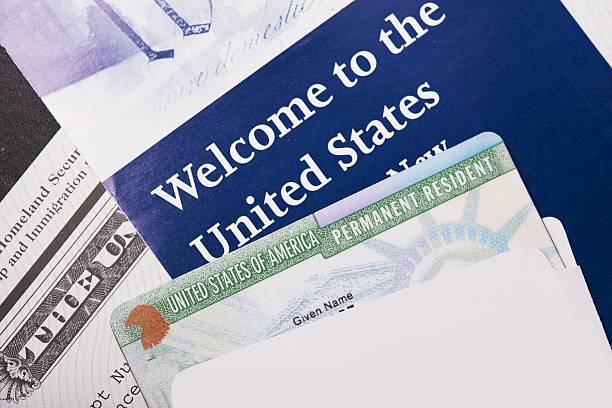How to Secure a Job Offer in Canada from Outside the Country
Canada is a top destination for job seekers worldwide, offering a strong economy, ample career opportunities, and a high quality of life. Many Canadian employers actively seek international talent, making it possible for skilled professionals to secure job offers from outside the country. However, applying for jobs remotely brings unique challenges, including differences in resume formats, interview processes, and the need to meet Canadian work permit requirements.
This article provides a comprehensive guide on how to secure a job offer in Canada from abroad, covering essential steps from preparing a Canadian-style resume to networking and preparing for remote interviews.
What are the Requirements for Canadian Work Permit?
Before applying for jobs in Canada, it’s essential to understand the types of work permits and visa requirements that foreign workers need. Here are some common Canadian work permits for international applicants:
-
- Labor Market Impact Assessment (LMIA)-Based Work Permits: Many Canadian employers need to complete an LMIA to prove that hiring a foreign worker won’t negatively impact the Canadian labor market. Once approved, employers can sponsor a foreign worker’s application for an LMIA-based work permit.
- Global Talent Stream (GTS): Designed for high-demand tech and skilled positions, the GTS offers a fast-tracked LMIA process, helping skilled foreign workers secure jobs in sectors like software engineering, data science, and cybersecurity.
- Employer-Specific Work Permits: Some work permits are tied to a specific employer and require a job offer in hand before application.
- Open Work Permits: Unlike employer-specific permits, open work permits allow workers to work for any Canadian employer but are typically issued to certain groups, such as spouses of skilled workers or international students.

Importance of a Job Offer for Work Permit Eligibility
Securing a job offer before applying for a work permit strengthens an applicant’s chances, especially for LMIA-based permits, which require employer sponsorship. Knowing the permit requirements will help job seekers focus on companies open to hiring international talent.
Preparing a Canadian-Style Resume and Cover Letter
Canadian resumes differ slightly from those in other countries, with an emphasis on skills, experience, and a clear, concise format. Here’s how to create a resume that aligns with Canadian expectations:
-
- Format: Use a reverse-chronological format with a focus on recent experience. Avoid adding photos or personal details like age, marital status, or nationality.
- Focus on Accomplishments: Highlight achievements and quantify results where possible (e.g., “Increased sales by 20%”).
- Relevant Skills: Include a skills section with hard skills relevant to the job.
- Concise Cover Letter: Write a tailored cover letter expressing your interest in the company, relevant skills, and motivation to work in Canada.
Investing time in tailoring your resume and cover letter can make a significant difference when competing with local candidates.
Identifying In-Demand Job Sectors and Roles in Canada
Certain industries in Canada are experiencing skill shortages, increasing the likelihood of employers sponsoring international workers. Here are some of Canada’s high-demand industries:
-
- Healthcare: Physicians, nurses, and other healthcare professionals are in high demand, particularly in rural and remote areas.
- Technology: Roles in software development, cybersecurity, AI, and data science are well-suited for skilled foreign workers.
- Engineering: Civil, mechanical, and electrical engineers are highly sought after, especially in infrastructure and environmental projects.
- Skilled Trades: Carpenters, plumbers, electricians, and heavy equipment operators are in demand across Canada, particularly in the construction and manufacturing sectors.
Researching high-demand occupations in specific provinces will help you identify where you are most likely to find job openings and employer sponsorship.
Finding Job Openings on Canadian Job Portals and Websites
Using Canadian job portals is essential for accessing legitimate job opportunities. Here are some popular job sites for foreign applicants:
-
- Job Bank: Canada’s official job site, featuring verified job postings across all provinces.
- LinkedIn: A useful platform for job hunting and networking with Canadian professionals.
- Indeed Canada: Aggregates job postings from multiple sources, with an option to filter by “Visa Sponsorship.”
- Workopolis and Monster Canada: Other major job portals with a range of listings across industries.
When searching for jobs, use specific keywords like “Visa Sponsorship” or “LMIA available” to identify openings for international applicants.
Networking with Canadian Employers and Professionals
Networking is crucial in Canada’s job market, as many job openings are filled through referrals and connections. Here’s how to build your network:
-
- Connect on LinkedIn: Reach out to Canadian employers, industry experts, and HR professionals in your field. Send personalized messages and express your interest in working in Canada.
- Join Online Industry Groups: Participate in forums and social media groups related to your industry in Canada. Engaging in these communities can lead to valuable connections and job leads.
- Attend Virtual Career Fairs: Many Canadian organizations host online job fairs open to international candidates, offering direct access to employers.
Networking can make a significant impact on your job search, increasing your visibility and credibility among potential employers.

Leveraging Recruitment Agencies for Foreign Workers
Recruitment agencies can be valuable allies for international job seekers, especially those unfamiliar with the Canadian job market. Many agencies specialize in placing foreign workers and are knowledgeable about visa sponsorship requirements.
Choosing Reputable Agencies
Look for Canadian recruitment agencies that specialize in international placements, such as Hays Canada, Robert Half, and Express Employment Professionals. These agencies often have connections with employers seeking to hire foreign workers.
When working with an agency, make sure to provide clear information about your skills, experience, and openness to relocation. Recruitment agencies can assist with application preparation and provide insights into employer expectations.
Applying for Jobs and Following Up Effectively
Once you find relevant job openings, submit well-prepared applications that make a strong impression. Here’s how to increase your chances:
-
- Tailor Each Application: Customize each application to highlight skills relevant to the specific role. Avoid using a generic resume and cover letter.
- Follow Up: After applying, send a polite follow-up email to express your continued interest and ask if further information is needed.
- Show Commitment to Relocating: Emphasize your dedication to moving to Canada and contributing to the company’s success.
Following up demonstrates proactivity and reminds employers of your interest, especially in competitive job markets.
Preparing for Remote Interviews with Canadian Employers
Remote interviews are common for international candidates, and preparation is key to making a positive impression.
Tips for Remote Interviews:
-
- Test Your Technology: Ensure a stable internet connection, good lighting, and a quiet space for the interview.
- Understand Canadian Workplace Culture: Familiarize yourself with workplace expectations, values, and professional etiquette in Canada.
- Be Ready for Behavioral Questions: Canadian employers often use behavioral interview techniques, so prepare examples showcasing your skills, adaptability, and problem-solving abilities.
Expressing cultural adaptability and knowledge of Canadian workplace standards can help employers see you as a good fit for their team.
Exploring Canadian Immigration Programs that Include Job Search Support
Some Canadian immigration programs offer resources to assist foreign workers in securing jobs.
-
- Express Entry: Points are awarded for valid job offers, giving candidates an advantage in the system.
- Provincial Nominee Programs (PNPs): Many provinces support job-seeking immigrants by offering PNP streams aligned with in-demand sectors.
- Global Talent Stream: This program is part of the Temporary Foreign Worker Program (TFWP) and fast-tracks high-demand tech workers for Canadian employment.
Participating in these programs can increase your eligibility for Canadian immigration, enhancing your job prospects and expediting the work permit process.
Conclusion
Securing a job offer in Canada from outside the country requires a combination of preparation, networking, and knowledge of the Canadian job market. By creating a Canadian-style resume, targeting in-demand sectors, building professional connections, and utilizing job portals and recruitment agencies, international applicants can improve their chances of landing a job. Persistence and a proactive approach are essential, as is familiarizing yourself with Canadian work permit requirements and immigration programs.
Frequently Asked Questions
Q: Can I apply for a work permit without a job offer in Canada?
A: Most Canadian work permits require a job offer from a Canadian employer, although open work permits are available for certain applicants, such as spouses of skilled workers and international graduates.
Q: How can I find Canadian employers willing to sponsor work visas?
A: Use job portals like Job Bank, Indeed Canada, and LinkedIn to search for “Visa Sponsorship” or “LMIA available.” Networking with Canadian professionals and using recruitment agencies also increases your chances.
Q: How long does it take to secure a work permit after receiving a job offer?
A: Processing times vary depending on the permit type and country of residence. LMIA-based work permits can take a few weeks to several months.
Q: Is it necessary to speak French to work in Canada?
A: English is sufficient for most regions, but in bilingual or French-speaking areas like Quebec, French language skills are advantageous.
Q: Are there Canadian immigration programs that help with job placement?
A: Yes, programs like the Global Talent Stream and certain PNPs assist in connecting skilled workers with Canadian employers in specific high-demand sectors.


